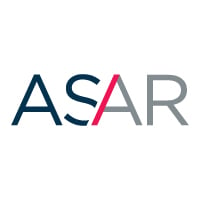

Legal manager | Automated Systems Company (ASC)



Sulaiman A. Alsulaiti
Legal manager | Automated Systems Company (ASC)
How do you approach managing legal aspects during periods of instability or crises, and how does your legal strategy align with the broader business strategy to ensure the organisation’s resilience?
During the COVID-19 period, we faced challenges that initially seemed insurmountable. My approach was grounded in research, innovation, and constant engagement with peers across the industry to understand how others were navigating similar issues. This collaborative exchange of knowledge enabled us to adopt and adapt best practices swiftly.
On a practical level, I led a comprehensive review of contracts to identify and apply force majeure provisions where necessary, ensuring that the company was protected against liabilities arising from delays or disruptions. I also closely monitored evolving regulations, providing timely advice to management on how to remain compliant with new government directives while sustaining operations. Another critical task was guiding the organisation in managing its obligations towards employees, suppliers, and partners – striking the right balance between legal compliance, fairness, and maintaining business relationships.
To align legal strategy with the broader business strategy, we embedded legal risk assessments into every stage of crisis decision-making. This enabled leadership to make agile choices that were not only commercially viable but also legally sound. Beyond managing the immediate crisis, I focused on establishing frameworks for future resilience, including the development of updated contract templates with stronger crisis-response clauses, the enhancement of internal governance processes, and improved preparedness of our teams for potential future disruptions.
This experience underscored the importance of cross-functional cooperation, flexibility, and open communication – not only to protect the organisation’s interests during a crisis but also to build a stronger, more resilient foundation for the future.
What are the major cases or transactions you have been involved in recently?
One of the most complex matters I handled was a dispute with an international organisation during the COVID-19 period. The challenge was that both parties had valid positions yet were equally bound by strict regulations that limited traditional paths to resolution. Despite these constraints, both sides valued the relationship and were committed to finding a solution. Over more than two years of negotiations, we worked to understand each other’s regulatory boundaries, identify creative compromises, and ultimately reach a mutual understanding that preserved the long-term partnership. This experience highlighted the value of patience, relationship management, and strategic negotiation in resolving high-stakes matters.
In addition, I was recently involved in a settlement negotiation. Due to its confidential nature, I cannot share further details, but it was a significant process that reinforced the importance of strategic alignment and discretion in managing sensitive legal issues.
What factors influence your team’s decision to use external legal services versus handling matters in-house, and what criteria are used to evaluate their performance?
The majority of our matters are handled in-house, allowing us to maintain control, efficiency, and deep institutional knowledge. We engage external counsel for highly complex cases, particularly those involving foreign jurisdictions. Selection is based on their expertise in the relevant legal system, proven track record, and ability to align with our commercial objectives. We have worked with counsel in Kuwait, England, Saudi Arabia, Egypt, and India, all of whom have delivered excellent service.
The performance of external legal counsel is evaluated based on their expertise in the relevant jurisdiction, responsiveness, clarity of communication, practicality of advice in supporting our commercial objectives, and ability to deliver high-quality outcomes in a cost-effective manner. To ensure this, we monitor fees closely and seek clarity on billing structures to avoid unnecessary costs, while ensuring that the value delivered justifies the expense.
Another important factor is how external advisers complement our in-house capabilities. We bring institutional knowledge and business understanding, while external counsel contribute specialist expertise and jurisdiction-specific insight. In some cases, we engage in open discussions and challenge their views, giving them the opportunity to present their reasoning and defend their position. If their approach proves sound, we are open to adopting their legal strategy. This ensures that every engagement delivers both legal accuracy and tangible value to the organisation.
What emerging technologies do you see as having the most significant impact on the legal profession in the near future, and how do you stay updated on these developments?
Artificial intelligence will be the most transformative technology in the legal profession. It has the potential to streamline legal research, contract analysis, and compliance monitoring. To stay updated, the Legal Department at ASC has attended workshops and seminars, benefiting also from our position within an IT company. This environment enables us to learn directly from technology experts within the organisation and to engage in discussions on emerging trends and their application to enhancing legal services.
How does your team contribute to the overall business strategy of the company? Can you share an example of a recent legal-led initiative that had a significant impact?
We organised a seminar for our sales team to highlight the advantages of ASC’s status as a semi-government entity. By educating them on how this positioning could be leveraged in pursuing government deals, we strengthened the alignment between our legal strategy and business development efforts. This initiative directly contributed to enhancing our competitive edge in the public sector.
In addition, our team introduced innovative contract structures designed to provide commercial flexibility while maintaining legal safeguards. This approach enabled the company to negotiate more effectively in competitive tenders and provided a framework for building stronger long-term partnerships with key clients. By balancing risk allocation with commercial incentives, we created opportunities for sustainable value and established a legal foundation that supported business growth.